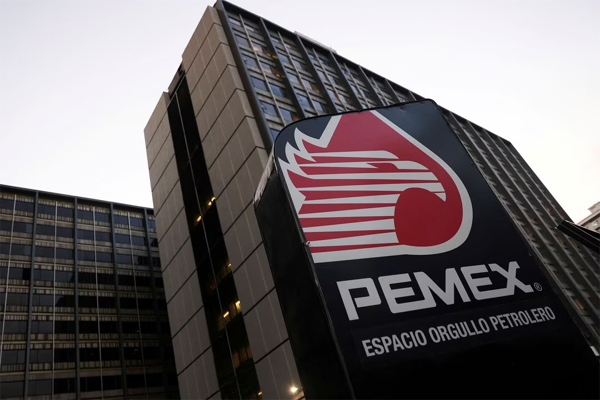
Ana Isabel Martinez, Reuters
MEXICO CITY
EnergiesNet.com 02 15 2023
After the market imposed a sky-high rate on bonds Pemex issued in January, Mexico’s state oil company is preparing to pay its debts on its own this year and will turn to the government – rather than the market – for help if oil prices plunge, two sources told Reuters.
The strategy comes after a lengthy back and forth between Pemex and the finance ministry over who will pay the company’s mountain of debt, which at $105 billion makes Pemex the world’s most indebted oil company.
President Andres Manuel Lopez Obrador’s administration had committed in 2021 to help Pemex with its debt payments to free up company funds for investment in exploration and production with the aim of ultimately boosting output – a core goal of the government.
But as crude oil prices soared following Russia’s invasion of Ukraine, the finance ministry argued Pemex should tap unusually high profits – $9.6 billion for the first nine months of 2022 – to meet debt payments on its own.
Prices then dropped, however, changing the panorama. Pemex Chief Executive Octavio Romero warned in December that there had been talks with the treasury about fresh support.
That support was not forthcoming in January, forcing Pemex to tap the market. But the market, concerned by the apparent pull of government support, whacked a 10.375% premium on the $2 billion of issued 10-year bonds.
In comparison, sovereign bonds of a similar maturity were issued at 5.3%.
The high cost of borrowing forced a recalibration in Pemex and renewed determination to avoid the market, two company sources familiar with the matter said.
“For now, the plan is to use Pemex’s own cash and not carry out any more debt refinancing operations in the markets, provided oil prices remain high,” said one of the sources who requested anonymity to speak about a non-public matter.
Pemex has said it must pay back some $8 billion of financial debt this year and $8.7 billion next.
“President Andres Manuel Lopez Obrador has always said that if necessary … more support will be given,” the source said, adding: “If oil prices drop a lot, well below budgeted, then perhaps direct injections would have to be sought to pay off the debt.”
But both sources said Pemex was banking on high crude oil prices to maintain the investments for this year as well as meet its financial obligations – without issuing more bonds.
The government estimates that the company’s oil export mix would be worth $68.70 per barrel this year, down from an average of $89.35 per barrel in 2022.
Global benchmark Brent crude prices have steadied this year so far amid worries of an economic contraction after surging 10% last year.
Neither Pemex nor the finance ministry responded to requests for comment.
Credit rating agencies and other experts also expect that Pemex would receive support from the government in case liquidity dries up.
Over the current administration, Pemex has received an estimated $45 billion in capitalizations, direct transfers, tax exemptions and other contributions, according to a company presentation in January seen by Reuters.
Even so, the government and Pemex have struggle to lower overall debt levels. Financial debt started ballooning years ago when the oil company took on debt to pay its debts.
Pemex for decades has propped up Mexico’s state coffers, used as a cash cow to support the running of the country.
The company paid in January at least eight coupons of different bonds that became due as well as $1.1 billion for the remainder of one issued in 2013.
In February, at least 13 coupons are due, followed by another six in March, data from Refinitiv Eikon showed.
Pemex declined to reveal the total value of debt payments due and Reuters was unable to independently calculate the figure.
Reporting by Ana Isabel Martinez; additional reporting Rodrigo Campos in New York; writing by Stefanie Eschenbacher; editing by Stephen Eisenhammer and Marguerita Choy
reuters.com 02 14 2023











